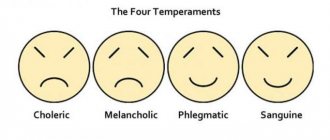Voluntarism is a philosophical position developed as an abstract philosophy in ancient times. Voluntarism did not come out of nowhere; it presupposes a very old idea of active will, when the subject has the will to self-existence, to moralism, to rationality, to pragmatism. Thus, an individual needs to have manifestations of will in order to be himself and the master of life.
The position on such a will originated on the basis of religion; it can be traced in the messages of the founder of Christian philosophy, the Apostle Paul. If we analyze these messages philosophically and remember the apostle’s reasoning about the difference between physical and spiritual circumcision, about the need for spiritual circumcision, then we will see that spiritual circumcision is a volitional self-compulsion and a very clear goal orientation: “I see the goal and force myself to correspond to it.” What the Apostle Paul recommended is addressed to Christianity: “a person must force himself to be a Christian.” So, with the change of eras, the principle remained unchanged: a person must force himself to be a European, serve the state, his own corporation, himself, force himself to be a pragmatic subject and act. Thus, voluntarism appears as a kind of struggle of an individual with various circumstances.
Voluntarism is...
What voluntarism is, no matter how funny it may seem, is explained in the simple words of a popular song: “If you really want to, you can fly into space!” It is possible, but how?
Here I am - I really want to fly into space. But the age is not the same, the health is not the best, and used philologists are unlikely to be in demand in orbit. If, despite all the circumstances and objective data, I still continue to bang my head against the wall of Baikonur, then this will be a manifestation of voluntarism.
In the most general sense, voluntarism is a persistent desire to achieve one’s goal without taking into account the factors of objective reality and consequences.
The counterbalance to voluntarism is determinism, which asserts that everything in this world is natural and interconnected.
In different areas of knowledge and at different times, the concept of voluntarism carries its own semantic load, but it is always based on the category of will. The word itself is derived from the Latin voluntas - will .
The term appeared in 1883 thanks to Ferdinand Tönnies, a German sociologist who believed that the interaction of volitional impulses of people leads to the formation of stable social groups.
Let's figure out how voluntarism is understood in philosophy, sociology, economics and psychology.
What is voluntarism?
The concept of "voluntarism" comes from the word voluntas, which means "will". What it is? Philosophers put into the concept of voluntarism natural, human or divine will, which is the main one in the development of the world.
Although this concept appeared relatively recently, its origins date back to ancient times, when individuals tried to prove the freedom of every creature in shaping their own destiny.
In simple words, voluntarism is the strong-willed position of a person who declares his desires and strictly follows them. He becomes free from social norms and rules, without infringing on the rights and freedoms of others. He declares his position and defends it, while demanding that others adhere to the stated requirements, while remaining themselves.
A voluntarist can be called the master of life, who takes full responsibility for his own life. At one time, will was opposed to reason, that is, it contradicted another philosophical direction - rationalism. Since in ancient times there were many directions in psychology and philosophy, each figure had his own opinion on voluntarism:
- Spinoza did not consider human behavior without motivation. Will refers to the mental part of life, but not to the physical.
- Kant viewed the will as a unit that can be free and unfree.
- Leibniz considered the will only in conjunction with rational decisions, and not with passions.
- Hegel compared will with freedom, defining voluntarism as “freedom.”
However, the founder of the movement is Schopenhauer.
Strive to live freely and happily. It sounds familiar and optimistic. But what you put into this short expression will affect your ability to live freely and happily.
What does free mean? Should we live according to the rules established by society, or be free in our choice, understand that life cannot develop according to the same scenario? What does happy mean? Achieve goals that all people achieve, or allow yourself to have what truly makes you happy?
Some rules by which society lives harm you, attitudes and beliefs that are considered correct deprive you of happiness, goals will not give you the happiness that should come from within.
There is a belief that it is better to have a wedding once. It is a good wish. If you managed to find a person whom you were able to love for many years and with whom you build a harmonious relationship, then you can be happy for you. But what to do if there is no love between the spouses, every day passes in scandals, the husband and wife began to look for lovers?
The “Create a family once and for all” attitude simply destroys the opportunity for both spouses to live happily. But you can separate. You can find other partners and get married with them. You can become someone’s spouse at least 5 times in your entire life and get a divorce.
Currently reading: Almost a beginner wizard's course
If you didn’t manage to find happiness in your first marriage, then you have the right to try your luck in your second. Sometimes a good choice is when you start a relationship with someone who is divorced. This partner knows what marriage is, responsibility in family life and running a joint household. He understands what it's like to live with another person under the same roof and what he needs from his beloved partner.
This knowledge is not possessed by anyone who has never married. These people still don’t know what family life really is. And the very attitude of “Getting married once and for all” can either help you become a happy person or completely destroy your happiness.
Allow yourself to be free. Allow yourself to have as many partners as you need. Even if you change partners every year and feel like a happy person, allow yourself this lifestyle. You don’t have to live by the attitude “Give your heart to one, don’t go out with many.”
Freedom means not living according to social rules. This is permission for yourself not to be a millionaire, not to have an expensive car, not to be a macho hero, not to be beautiful, not to have children, to be a single person or a woman free from marriage. If you feel the need to live differently from the norm, give yourself permission to do so. This is how you can become a happy person. Happiness cannot be achieved by being guided by traditions and social frameworks.
There are people who want to have children, and there are those who do not feel the need to give birth to heirs. Why not let everyone be right: let some give birth, and others not! Some social attitudes simply deprive people of happiness. While you are trying to live like everyone else, you are helping society make you an unhappy person.
Political voluntarism
Political voluntarism implies a form of activity that is based on the subjective desires and goals of a politician who ignores the objective realities of political life.
Voluntarists absolutize the role of the volitional principle in power, without taking into account the real state of affairs and without calculating the consequences of decisions made. Such an organization of political activity is flawed and cannot exist for long.
Voluntarism in politics is a destructive force that arises under a combination of certain circumstances , including:
- alienation of the people from political power;
- bureaucratic management model;
- lack of political culture, etc.
Translation and meaning of the term
What is voluntarism? The meaning of this concept is most often associated with the arbitrary decision of an individual who neglects the objective laws of life.
The word itself is of Latin origin and means “freedom”. This is a philosophical idealistic direction that attributes the main role to the will of man (or the divine principle) in the development of society and nature as a whole.
Carrying out an allegory, we can say that voluntarism (what is already known) is a kind of struggle of the individual with various circumstances.
Economic voluntarism
The concept of economic voluntarism logically follows from the political.
This system of economic management, which neglects the requirements of the laws of economics, slows down economic growth and provokes crises.
In Russian and world history, economic voluntarism has more than once become the cause of large-scale crises.
The most remarkable facts include ignoring the growing problems of serfdom (how is that?) and the resulting failure of grain yields in the mid-19th century, Stolypin’s agrarian reforms and the loud removal of the corn lover N.S. Khrushchev with the official formulation of “voluntarism”.
In the work area
Voluntarism in the work sphere. Agree, you have seen bosses who blindly carry out management decisions when this is completely irrational. The main thing is to please, period. Losses are not taken into account. That is, in such an organization it is not efficiency that rules, but real tyranny.
It is also a passionate will to power. An ordinary person thinks that he is not some kind of insect, but a superman. This is a person who thinks that the strongest should win in a battle for power. Or at least the most cunning one.
Everything that gets in the way is discarded or ruthlessly destroyed. Such figures calmly spit on morality, Christian laws and ethics.
Philosophy of voluntarism
The concept of will in philosophy appeared long before Ferdinand Tönnies, but there is no single generally accepted definition; different eras and philosophers explained will in their own way. In the Middle Ages, for example, it was believed that the will of God predetermines the entire existence of man, and was perceived as an external force.
There are two main directions in understanding the will:
- Reason determines will . This is most succinctly illustrated by the definition of will in Cicero, who called it “rational desire.” This perception, in various interpretations, is most common today.
- Will stands above reason , being the fundamental property of all things. This understanding is fundamental in the voluntaristic directions of philosophy of the 19th-20th centuries (Schelling, Schopenhauer, Nietzsche, etc.).
Voluntarism in philosophy is considered as a response to the current of rationalism widespread in the 18th-19th centuries, which prioritizes reason as the only source of true knowledge.
Two great idealist philosophers, Nietzsche and Schopenhauer, took the understanding of the will to a completely different level. The philosophy of both is called voluntaristic.
Arthur Schopenhauer (1788–1860) introduces the concept of world will - the force that controls all processes. In essence, this is life as a movement and an unstoppable flow. The will to live is an elemental force not determined by reason.
Schopenhauer became one of the founders of the voluntaristic direction “ philosophy of life ”, which is based on the idea of life as the absolute beginning of the world, in endless movement.
“Before me, philosophers were busy with the doctrine of free will; I teach about the omnipotence of the will.” Arthur Schopenhauer
Friedrich Nietzsche (1844–1900) brings to the fore the concepts of the superman and the will to power. And if in Schopenhauer the will stands above man and above all that exists, then in Nietzsche all that exists is the will to power, everyone is endowed with such a will and competes for power with many other wills.
In this struggle the strongest wins, therefore the will to power is the right of the strong. Everything that stands in the way of power must be destroyed and discarded. Morality, morality, Christian love for one's neighbor - all this is rubbish that interferes with the triumph of the will.
“Wherever I found living things, I found the will to power.” Friedrich Nietzsche
To summarize, we can say that voluntarism in philosophy is a direction that recognizes will as the fundamental principle of all things (life itself).
Application in philosophy
The beginnings of philosophical voluntarism can be traced in the teachings of such a famous philosopher as Augustine the Blessed. In his Christian teaching, he expressed the idea that a person without the will of God cannot commit a single act other than sin. The next who turned to the study of voluntarism from a philosophical point of view were Arthur Schopenhauer (the main idea: the human will is primary, reason is secondary, everything that exists around is the will to live) and Friedrich Nietzsche (novelty - introduced the concept of “biological voluntarism” – when the “will to live” develops into the “will to power”).
Summarizing the ideas of all philosophers who turned to the study of voluntarism, we can say that this direction of idealistic philosophy considers divine (supernatural) or human will to prevail in the development of nature and society. Philosophical voluntarism includes the following areas:
- theological:
God is primary, all living things obey him, and not reason or knowledge, he is omnipotent and omnipotent, therefore his actions cannot be rationally explained (Augustine the Blessed); - metaphysical:
unconsciousness and irrationality dominate the mind (A. Schopenhauer, Z. Freud, F. Nietzsche); - epistemological:
for the will, faith is at the forefront in comparison with knowledge (F. Schelling, I. Fichte); - political:
the task of the government is to be guided by the needs and desires of the people, and not the ruling elite. If the government chair was occupied by a cruel tyrant or a person with an unbalanced psyche, the inhabitants of the country had the right and opportunity to overthrow him at the same hour (Thomas Hobbes, Jean-Jacques Rousseau).
Voluntarism in psychology
If in the philosophy of voluntarism it is believed that will determines the course of life, then in psychology this direction proclaims will as the primary ability of the individual, determining all other mental processes.
The founder of the direction of voluntarism in psychology was the German physician Wilhelm Wundt (1832–1920), who paid special attention to the ability of the human brain to self-organize.
The scientist believed that willpower makes thinking highly organized, and a person is able to make observations of his own consciousness using the method of internal perception (perception).
Wundt's theory of self-analysis had many critics, some of whom argued that the psychologist's experimental subjects who underwent sessions of internal perception received mental disorders.
Although there were also many supporters of the idea who considered volitional impulses to be the decisive factors in human actions and proclaimed the dominance of the will over the entire psyche - W. James, G. Munsterberg and others.
Khrushchev's voluntarism
After Nikita Sergeevich Khrushchev came to power in the USSR, his leadership style received the official name “voluntarism.” What is this in simple words?
Khrushchev arbitrarily resolved all economic issues, neglecting the recommendations of scientists and specialists. The party leader overestimated his own strengths, and all his transformations were random and subjective.
Khrushchev's voluntarism came down to solving economic issues using methods of a political and administrative nature. His economic and administrative reforms failed.
Special semantics of the word in the West
The concept of voluntarism, with the dominant role of the will over all the difficulties of life, has taken root in America with a positive connotation.
This is, first of all, justified historically. In the New World, it was will that determined success. They came here to start from scratch; the “American Dream” is still in use here, declaring freedom of opportunity and action.
It is assumed that any person with the will to move upward can reach the highest social levels, regardless of his starting background.
Schopenhauer's voluntarism
Schopenhauer lived in the time of Hegel, when the main driving force was given to reason. However, the philosopher doubted this idea, noting that without will a person would be predictable. However, it is not. The world is irrational. A person is free to choose his actions, thoughts and decisions. Will has neither beginning nor end. This was all put into the concept of voluntarism by Schopenhauer.
Man is a multifaceted being who rarely comes from rational thoughts, but often succumbs to affects, fears, passions, and dark impulses. He is able to bring some of them to the level of consciousness. On the other hand, a person has such an ability as cognition. This happens when contemplating something. An object does not exist without a subject, just as a subject does not exist without an object. The intellect plays only a connecting role in understanding what is contemplated. However, something else can understand the depth of what is happening.
Schopenhauer's goal is to understand a person as a range of feelings, when he is afraid, strives for something, or is dissatisfied with something. The world itself is not something good or bad. It is given meaning only by the person who contemplates, creates, corrects and explains it.
A person’s claims are associated with delusions of grandeur, which the philosopher explains by three symptoms:
- Cosmological - a person considers himself the center of the Universe, the master.
- Biological - man perceives himself as the crown of creation.
- Psychological - a person believes that his consciousness is the master of life.
Currently reading: Ways of self-improvement
Schopenhauer believes that the will comes from human evil, the main tasks of which are:
- The desire to be is an instinct of self-preservation, when a person does everything not to die.
- The desire to continue the family line is a person’s desire to continue living through descendants when he himself dies.
The philosopher considers ways to eradicate this “evil”:
- Loss of individuality.
- Liberation from will.
- Dissolution in an object.
- Forgetting about personal desires.
The meaning of the word Voluntarism according to the Brockhaus and Efron dictionary:
Voluntarism is a doctrine opposite to intellectualism. V. consists in the assertion that reality in the final instance is something identical or related to will. Christianity contributed to the emergence of this doctrine, valuing the will above the intellect. St. Augustine is the first representative of V. In the Middle Ages, Duns Scotus and William of Ockham were voluntarists. Kant, with his teaching on the primacy of practical reason over theoretical reason, gave impetus to V. After Kant, V. developed in two directions: in the first, he took on a more rational character, in the second, an anti-rational character. Fichte the Elder is a representative of the first: for him the activity of consciousness is the source of being. Schopenhauer is a representative of the second. He opposes will to reason. His will is blind. The newest form of V. belongs to Wundt. with him V. takes an empirical form. Wundt tries to eliminate the metaphysical side as much as possible. See N. Lossky, “Basic teachings of psychology from the point of view of voluntarism” (St. Petersburg, 1903).










